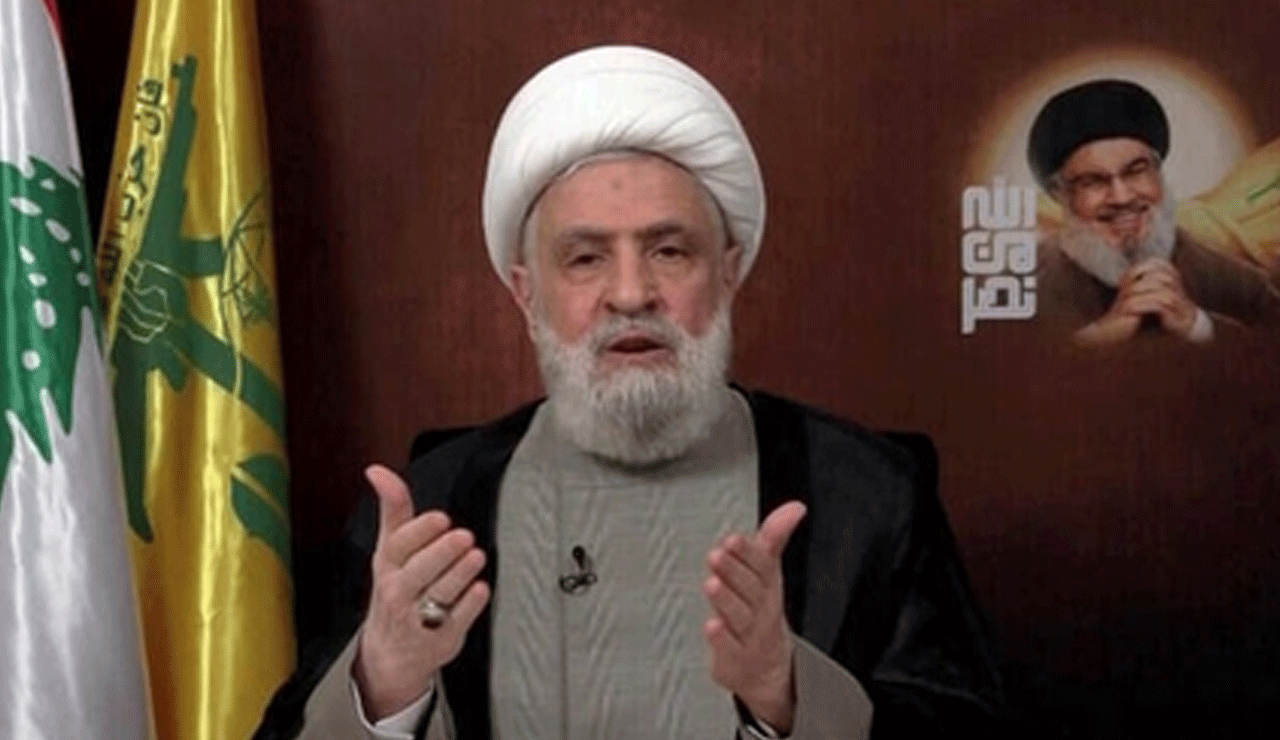Hezbollah vs. The State? Naim Qassem Rejects 2025 Arms Control Goal
Hezbollah’s deputy leader, Naim Qassem, has strongly dismissed growing calls for the group to disarm, stating that any attempt to remove its weapons is a “delusion” and would ultimately serve Israeli interests.

Beirut: Hezbollah’s deputy leader, Naim Qassem, has strongly dismissed growing calls for the group to disarm, stating that any attempt to remove its weapons is a “delusion” and would ultimately serve Israeli interests.
Speaking during a public address on Friday, Qassem said, “No one will be allowed to remove the weapons of the resistance.” He warned that disarming Hezbollah would render Lebanon weak and defenceless, paving the way for what he called Israel’s expansionist ambitions.
Table of Contents
Resistance Weapons ‘Essential to Sovereignty’, Says Qassem
Qassem argued that Hezbollah’s arsenal is a legitimate response to “Israeli occupation and aggression,” and is crucial for safeguarding Lebanon’s sovereignty.
“The Lebanese army alone is not equipped to defend the country,” he stated, defending Hezbollah’s military role alongside national institutions.
Also Read: PM Modi to Visit Saudi Arabia on April 22–23, 2025: Strategic Ties in Focus
The remarks come amid renewed domestic and international scrutiny of Hezbollah’s military autonomy, a subject that has long divided Lebanese politics.
Lebanese President and PM Push for State Control Over Arms
President Joseph Aoun, during a visit to Qatar this week, reiterated his plan to bring all weapons under state authority by 2025. He emphasized that the process must be based on domestic consensus, not imposed by foreign actors.
Prime Minister Nawaf Salam supported the President’s position, stating in an interview with Al Arabiya that only the Lebanese state should have the power to decide matters of war and peace.
Both leaders have signaled a policy shift away from Hezbollah’s influence since taking office, a move seen by analysts as a reflection of the group’s waning political leverage.
Hezbollah’s Role and Israel’s Ongoing Military Activity
Despite a ceasefire agreement in November 2024, Israel has retained control of five strategic positions in southern Lebanon and continues to conduct airstrikes on Lebanese territory, claiming they are aimed at Hezbollah targets.
President Aoun did, however, acknowledge Hezbollah’s “restraint” since the truce, noting that the group had handed over more than 100 positions near the Litani River.
Tensions Remain as Debate Over Disarmament Deepens
Qassem accused domestic critics of advancing foreign agendas and creating artificial political crises.
“The true danger is Israel’s occupation and ongoing aggression,” he said, reiterating that Hezbollah’s resistance was not negotiable.
As Lebanon moves closer to its 2025 deadline for centralizing arms under state control, the divide between Hezbollah and the government continues to grow, with regional and global implications.
